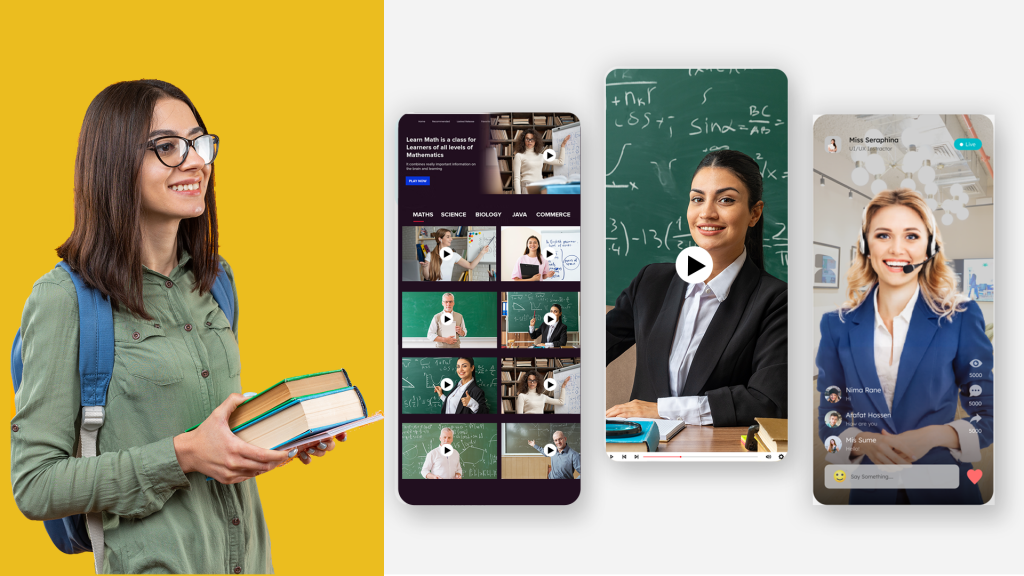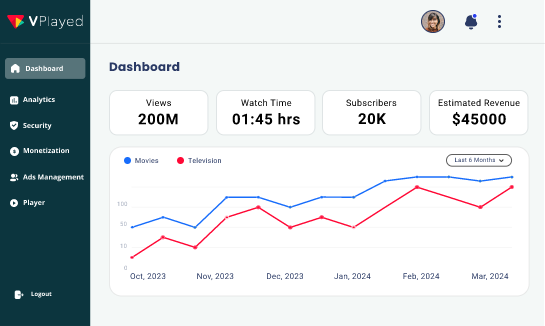Digital Classrooms: What Does The Future Look Like For Online Learning?

There was once a notion that digital classrooms can never match traditional learning. This was probably the case a couple of decades ago when online learning didn’t pick up the pace.
However, the quantum of development the elearning space has achieved in recent times is momentous and has almost bridged the gap between conventional Edu institutions and remote tutoring.
Be it lectures, seminars, practical demos, or interactive sessions, the scope and popularity of online classes have widened to an extent where the world continued to learn despite the pandemic times that put almost everything else to a standstill.
“The e-learning sector is estimated to be valued at $325 Billion by 2025”
It is digitalism that has favored this trend of virtual training in its extensivity. Moreover, online classes are flexible, promote distance learning, are economical, and as well as time-efficient.
Table of Contents
What eLearning Looked Like Over the Years?

It took years and years of research, development, and technical innovation to make elearning what it is today.
The 1990s – The term was first coined in the late 90s, referring to classes that happen via any electronic device.
2000 – 2005, the software and multimedia advancements further enabled more and more students to opt for the online way of learning.
2006 – 2010, the concept of mobile learning came into existence and this changed the way people started looking at video platform for education. Just-in-time & on-the-go learning began trending like never before.
The present day, educational apps are no longer confined to schools or universities. Almost any tutoring center, corporate, or business that demands training is moving towards owning a standalone online learning platform.
Online Learning, the Obvious Future of Education?
While it is too soon to say that elearning might completely replace the traditional classroom setup of tomorrow, it is evident that online learning is a promising tool for both students and tutors alike for generations to come, and here are some of the key reasons why!
I) Facilitates Microlearning
The concept of breaking down lengthy courses into relatively manageable small learning units is called microlearning and can be taken up by students at their convenience. eLearning paves the way for this particular type of educational methodology, which encompasses highly-targeted modules (10 – 15 mins long) for easy understanding.
II) Personalized Coaching
Unlike a traditional classroom space, student-centric elearning platforms offer tailored courses curated for every learner signed up with them, which is a great method of tutoring and benefits better than generalized courses.
III) Video-Based Curriculum
Being the most popular educational format, video has become the ultimate learning tool that is here to stay for centuries to come. Be it demonstrative content or live offerings, video tutorials are more engaging, boost interest and ease the learning process compared to audio classes.
Most Promising Features of an Online Learning Platform
Here comes the tricky part.
Online learning is empowering millions of schools, colleges, tutoring centers, and corporates around the globe for educating, illuminating, and training purposes via a combination of text, images, graphics, etc. And to deliver the best flipped-classroom experience, an online learning platform ought to be feature-rich in every possible way, and here’s what matters, be it on-demand, live offerings, or a mix of both.
| Feature | Purpose |
| Lecture Capture | An absolute necessity to record live lectures for later viewing. These videos are usually saved in a library and offered to students on demand. |
| Scheduled Training | The scheduling option is usually used to alert students with push notifications or a countdown buzz before an upcoming lecture, or webinar. |
| Interactive Tools | Interaction is the key and hence quiz/ in-video real-time messaging/ Free chat API options are a must-include in the platforms of today. |
| Course Suggestion | To make students engage on the elearning platform for a longer time, institutions can go ahead and recommend relevant courses based on what a student has signed up for. |
| Offline Downloads | Though optional, it is a great way the students of today can still access your course offerings despite the absence of an Internet connection. |
| Effective Playback | A well-equipped video player with forwarding/backward options aids easy understanding. |
| Closed Captions & Subtitles | To expand learning and knowledge sharing beyond language barriers, closed captioning/ subs can be included. This also helps students with special needs to understand the course in greater detail. |
Recommended Reading
Top 7 eLearning Trends Educators Ought to Focus in 2022
- Mobile learning continues to rule the educational realm. With on-the-go learning being the need of the hour, figures state that over 67% elearning developers are more inclined towards launching mobile-friendly modules. Also, it is estimated that the mobile learning market is expected to hit $80.1 Billion by 2027.
- Another engaging style of Edu training that is gaining immense popularity in recent times is Gamification wherein students are encouraged to take up course tests in a gaming format or quizzes that reward them with points/ scores.
- Corporates are more and more relying on LXPs (Learning Experience Platforms) to upskill their workforce, organize employee training, and curate relevant courses that their company can benefit from.
- AI-guided learning might probably be the future of digital classes. A personalized offering is the key here and platforms use machine learning to recommend video courses/ seminars based on data insights or analytics derived from student behavior.
- Though still in the developmental stage, Immersive technologies like augmented reality (AR) and virtual reality (VR) have penetrated the educational landscape to make learning more practical rather than merely theoretical.
- Several elearning apps have begun including Social learning as a part of their deliverables by involving students in team assignments and collaborative projects to enhance learning via group interactions.
- Continuous learning culture is an upcoming trend that organizations of several niches are catching up with. Rather than a one-time course, this system is used in providing e-training modules from time to time.
Summing up,
Contemplating how much the elearning ecosystem has evolved over the years sounds overwhelming.
From launching exclusive elearning platform to adopting modern teaching methodologies, educational institutions, corporates, and several other industries are leveraging the Internet to deliver innovative courses that are more benefitting than the traditional training structure.
In essence, the online space has not only facilitated better learning but also easy tutoring. Organized courses, remote teaching, increased student-teacher interaction, and improved results among several other pros is what is helping shape the young minds of tomorrow.
If You Already Have An Idea To Create An Online Learning Platform, Schedule a Free Demo And We’ll Get You On The Road To Educational Video Streaming Success

